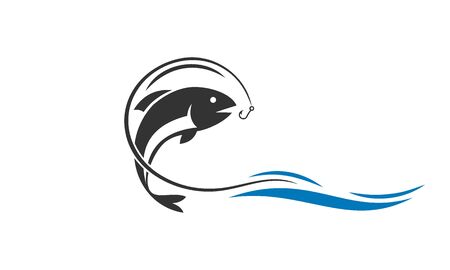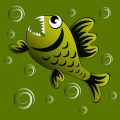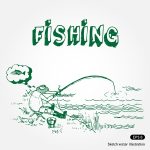Understanding the Importance of a Fishing License in North Carolina
Fishing is a treasured pastime in North Carolina, drawing locals and visitors alike to its rivers, lakes, and coastal waters. However, before casting your line, it’s essential to understand why fishing licenses are required and who needs one. A valid fishing license is more than just a legal requirement—it plays a crucial role in conserving fish populations and maintaining healthy aquatic ecosystems. In North Carolina, anyone aged 16 or older must have a fishing license to fish in public waters, whether you’re angling for bass in a freshwater lake or hoping to catch flounder along the coast. These regulations ensure that everyone contributes fairly to the stewardship of natural resources. The fees collected from fishing licenses directly support wildlife conservation efforts, habitat restoration, and educational programs. By purchasing a license, anglers help fund fish stocking programs and research initiatives that keep North Carolina’s fisheries thriving for generations to come. Following proper licensing guidelines also helps prevent overfishing and supports enforcement efforts against illegal activities, ensuring fair access for all who enjoy the sport. Ultimately, holding a valid fishing license reflects your commitment to responsible recreation and ethical outdoor practices.
2. Types of Fishing Licenses Available
North Carolina offers a variety of fishing licenses to accommodate the diverse needs of anglers, whether you’re a resident or just visiting for a short trip. Understanding which license suits your situation is essential before heading out to enjoy the state’s abundant waters.
Resident vs. Non-Resident Licenses
The first distinction you’ll encounter is between resident and non-resident licenses. Residents—those who have lived in North Carolina for at least six months—can purchase licenses at a lower cost compared to non-residents. If you’re from out of state, you’ll need to opt for the non-resident versions, which are priced higher but grant similar fishing privileges.
Short-Term and Annual License Options
Depending on how long you plan to fish, you can choose from short-term or annual licenses. Short-term licenses are perfect for visitors or occasional anglers, while annual licenses provide year-round access for those who fish regularly.
| License Type | Duration | Resident Fee | Non-Resident Fee |
|---|---|---|---|
| Short-Term (Inland or Coastal) | 10 Days | $9–$11 | $23–$32 |
| Annual (Inland or Coastal) | 1 Year | $25–$32 | $45–$63 |
Special Permits and Endorsements
Certain species and fishing methods require additional permits or endorsements. For example, if you plan to fish for trout in designated waters, you’ll need a Trout Stamp in addition to your base license. Likewise, specialized permits may be necessary for activities such as commercial fishing, gigging, or fishing in specific game lands. Always check the latest regulations before planning your trip to ensure full compliance.
![]()
3. How to Obtain a Fishing License
Step-by-Step Guide to Purchasing Your North Carolina Fishing License
Getting your fishing license in North Carolina is a straightforward process, and you have several convenient options. Here’s a step-by-step guide to help you get started:
Online Purchase
The fastest and most popular way is to buy your fishing license online through the North Carolina Wildlife Resources Commission website. Simply visit their licensing portal, create an account or log in, select the type of license you need (resident, non-resident, short-term, annual, etc.), and follow the prompts to enter your personal information and payment details. Once completed, you can print out your license or save a digital copy on your phone—both are valid for use.
Local Retailers
If you prefer an in-person experience, many local sporting goods stores, bait shops, Walmart locations, and outdoor retailers across North Carolina are authorized to sell fishing licenses. Bring a valid form of identification such as a driver’s license or state ID, and be ready to provide your Social Security number if required by law. The staff will guide you through the process and print your license on the spot.
Government Agencies
You can also obtain a fishing license directly from the North Carolina Wildlife Resources Commission offices or certain county clerks’ offices. This option is great if you have questions about which license suits your needs best or if you need additional permits (like trout stamps or coastal recreational licenses). Be sure to bring identification and proof of residency if applying for resident rates.
What You’ll Need
To successfully purchase a fishing license in North Carolina, be prepared with:
- A valid government-issued photo ID (such as a driver’s license)
- Your Social Security number (required for most applicants)
- Proof of residency (if applying for a resident license)
- A method of payment (credit/debit card for online; cash/card at retail locations)
With these simple steps and documents on hand, you’ll be ready to enjoy all that North Carolina’s waters have to offer while staying legal and informed.
4. Fees and Payment Options
Understanding the cost of a fishing license is essential before you head out to North Carolina’s lakes, rivers, or coastal waters. The state offers several types of fishing licenses tailored to residents, non-residents, and different fishing environments. Here’s a detailed breakdown of the current fees and accepted payment methods:
License Fee Structure
| License Type | Resident Fee | Non-Resident Fee |
|---|---|---|
| Annual Inland Fishing | $25 | $45 |
| 10-Day Inland Fishing | $9 | $23 |
| Annual Coastal Recreational Fishing | $16 | $32 |
| 10-Day Coastal Recreational Fishing | $6 | $11 |
| Unified Inland/Coastal Annual License | $41 | N/A |
Special Licenses and Discounts
Youth under 16 fish for free but may need a permit for certain locations. Senior citizens (age 70+) can purchase a lifetime license at a reduced rate, and there are also discounted rates for disabled veterans and active-duty military personnel.
Payment Methods Accepted in North Carolina
- Credit/Debit Cards: Visa, MasterCard, Discover, and American Express are widely accepted when purchasing online or at most authorized agents.
- Cash: Accepted at most in-person retailers such as tackle shops, sporting goods stores, and county wildlife service offices.
- Checks or Money Orders: Some government offices accept these for mail-in applications; make sure to verify before sending payment.
Additional Notes on Fees and Payments
All fees are subject to change by the North Carolina Wildlife Resources Commission. It’s recommended to check their official website or contact a local licensing agent for the most up-to-date information before making your purchase. Keep in mind that convenience fees may apply for online transactions.
5. North Carolina Fishing Rules and Regulations
Before casting your line in North Carolina’s waters, it’s crucial to familiarize yourself with the state’s fishing rules and regulations. Understanding these laws helps protect fish populations, preserves natural resources, and ensures everyone has a fair shot at enjoying the sport. Here’s a summary of the most important points you need to know to stay compliant.
Size and Bag Limits
The North Carolina Wildlife Resources Commission (NCWRC) enforces strict size and bag limits for various species. These limits specify how many fish you can keep per day (bag limit) and the minimum or slot size each species must meet to be legally harvested. For example, largemouth bass often have a minimum length requirement, while some trout streams operate under “catch and release only” rules. Always check the current NCWRC regulations before heading out, as these limits can change annually or by location.
Designated Seasons
Fishing seasons in North Carolina may vary depending on the species and waterbody. Certain fish, such as striped bass or mountain trout, have specific open and closed seasons to protect spawning populations. Fishing outside of these designated periods is illegal, so always confirm open dates for your target species in the official NCWRC guide.
Protected Areas and Special Regulations
Some areas across North Carolina are designated as protected zones, such as game lands, hatchery-supported waters, or wild trout streams. These locations may carry additional restrictions—like gear limitations (fly-fishing only), catch-and-release mandates, or restricted access during certain times of year. Pay close attention to posted signs and consult local maps or digital resources before fishing in unfamiliar spots.
Staying Informed and Legal
Regulations are updated frequently to reflect current conservation needs. Make it a habit to review the latest NCWRC guidelines each season—either online or in printed pamphlets available at license vendors. Remember, ignorance of the law is not an excuse; responsible anglers respect both the letter and spirit of North Carolina’s fishing laws.
6. Fishing Ethics and Responsible Angling
Practicing ethical and responsible fishing in North Carolina not only preserves the state’s rich aquatic resources but also ensures enjoyable experiences for everyone. Sustainable fishing starts with following all local regulations, such as bag and size limits, which help protect fish populations for future generations. Avoid overharvesting by keeping only what you need and releasing undersized or unwanted catches carefully to minimize stress and injury. Always respect private property—fish only where you have permission, and avoid trespassing on posted lands or interfering with other anglers’ space.
Being mindful of wildlife and the environment is crucial. Never leave trash, discarded fishing line, or bait containers behind; these can harm both animals and habitats. Use lead-free tackle when possible, as lead can be toxic to birds and aquatic life. Consider using barbless hooks for easier catch-and-release practices, and handle fish with wet hands to protect their delicate slime coating.
Community engagement enhances the angling experience in North Carolina. Participate in local clean-up events, conservation efforts, or educational workshops organized by groups like the North Carolina Wildlife Resources Commission. Share your knowledge with new anglers about ethical fishing techniques and environmental stewardship. By modeling respect for nature and fellow anglers, you help foster a positive community culture around fishing that benefits everyone.


